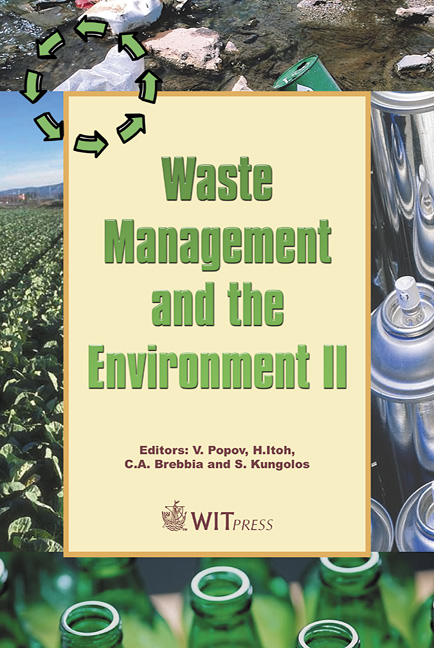Analysis Of Recycling Behavior
Price
Free (open access)
Transaction
Volume
78
Pages
10
Published
2004
Size
242 kb
Paper DOI
10.2495/WM040391
Copyright
WIT Press
Author(s)
D. M. Arekere
Abstract
Aspects of household recycling behavior and attitudes in the City of Bryan, Texas, USA, are examined using survey data obtained in 1999. Results indicate among other effects Bryan residents' preference for waste disposal is consistent with the waste management hierarchy established by the U.S. Environmental Protection Agency. The logit regression results show that respondents who are female, white, employed, have higher incomes, have children, own a house, and are self-perceived environmentalists tend to recycle more. Keywords: recycling behavior, solid waste policies, logistic regression. 1 Introduction Solid waste management (SWM) is an important issue facing municipalities [1]. Most SWM strategies designed and implemented by municipalities around the nation follow for the most part the waste management hierarchy developed by the U.S. EPA [2]. This hierarchy includes increasing source reduction, increasing recycling and composting, and decreasing the amount of waste disposed in landfills and through incineration. Households are being offered alternatives to conventional disposal methods, such as recycling programs, to alter their waste disposal behavior. These efforts have led to mixed results [3], partially because the marginal cost of waste disposal for many households is close to zero [4]. Moreover, most—if not all—SWM activities are centralized making it difficult for private firms to enter only the recyclable collection sector. Thus, there exists no incentive in the marketplace for households to alter their decrease waste generation, disposal or recycling behavior (for extensive discussion see Arekere [5]). It is important, however, to note that recycling is more popular now than in previous years and more people reported recycling than voting at one point [3].
Keywords
recycling behavior, solid waste policies, logistic regression.





